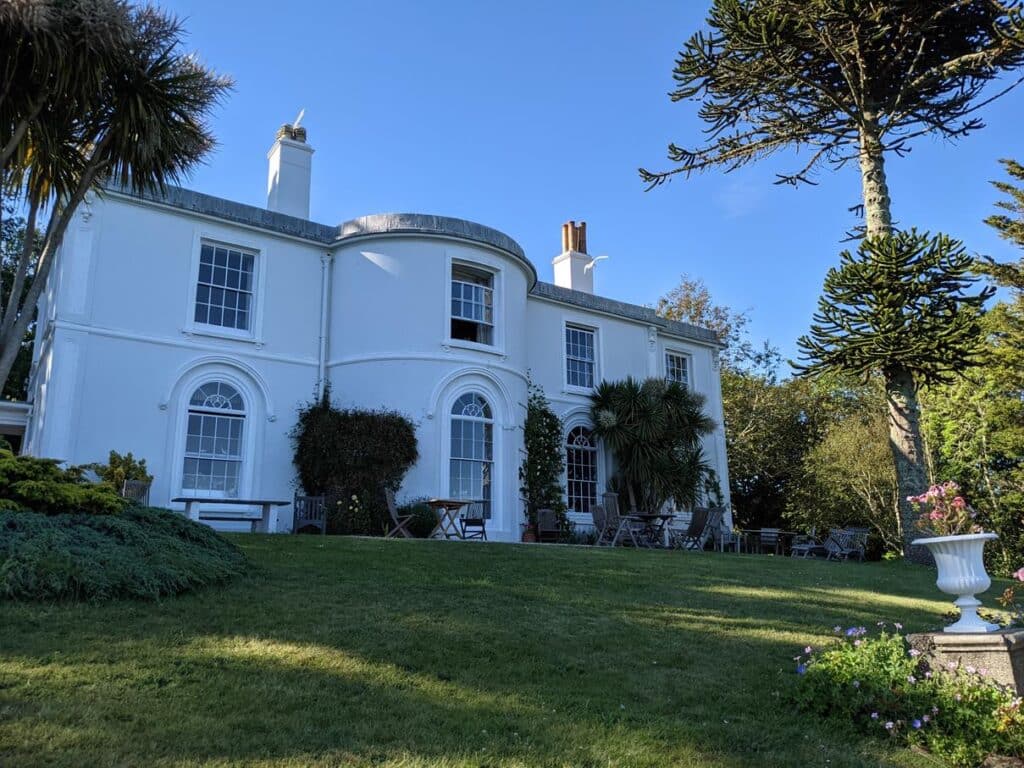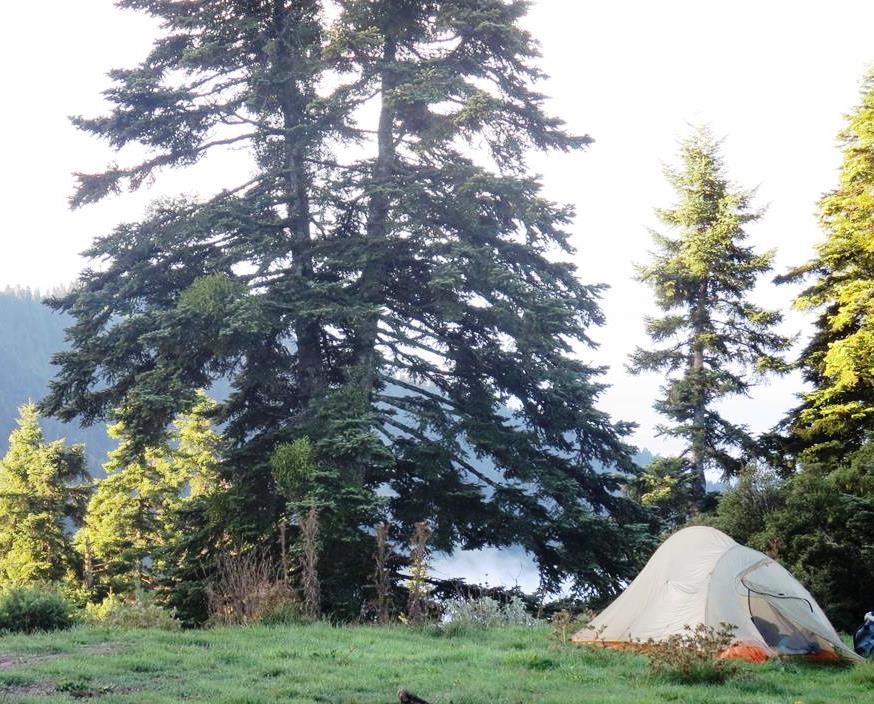
What was the most interesting Bed and Breakfast we stayed at overnight on the South West Coast Path?
The St Mawes B and B with the bearskin in the breakfast room, and the shelves of French detective stories in the bedroom, maybe. Or the one where my kind hostess was a tour guide and took me on a private tour of Looe. Or the B and B in St Ives where my great aunt used to live, and the owner and I sat up till late talking local history over a glass of wine. A big thanks to them all.
I love not knowing what to expect when I stop for the night, especially at the more idiosyncratic B and B’s. There are fewer of these now, I think, as the pandemic tipped some owners into retirement. And nowadays you have to book ahead, with many places fully booked in advance, or not willing to accept one night stays. More expensive, too.
When I first hiked the South West Coast Path ten years or so ago, I’d usually call a few B and Bs in the morning before setting off, to find somewhere for that night. My pace varied according to the weather, how I felt and how strenuous the path was, with no need to plan ahead. No longer!
The downside of booking ahead was that we had to stick to our itinerary, so when I felt the first twinges of sciatica, I didn’t do the sensible thing and rest for a few days. And of course, to do the whole 630 miles of the coastal path is now an expensive exercise.
Other places to stay
Wild camping is the cheapest and least planned option, popularised in Raynor Wynn’s book, The Salt Path. It wasn’t for us. I don’t mind that it’s illegal: that’s usually OK so long as you stop late, pitch camp early and leave no trace. I’ve wild camped a lot, both in the UK and elsewhere. But I felt that there were simply too many people now hiking and wild camping on the South West Coast Path. It no longer felt remote enough. Anyway, it was nice to have somewhere to retreat from the torrential rain and gales, and not to have to carry all our camping gear.
I stayed a lot in youth hostels on my first hike, but these were still closed due to the pandemic in summer 2021. As I get older, I also worry about disturbing others in a dormitory, if I snore or need to go to the loo in the night. We met one couple who had found a good solution. They stayed in official camp sites, but paid a luggage transfer company to deliver their gear each day.
I don’t think I’ll hike the South West Coast Path a third time. My next trip will be to somewhere less popular, where it’s easier and cheaper to find accommodation or to camp. Maybe in sunnier climes!
Tip: Check out the South West Coast Path Guide for accommodation lists. These all welcome walkers with muddy boots!

